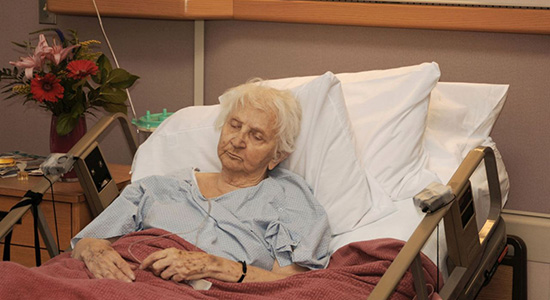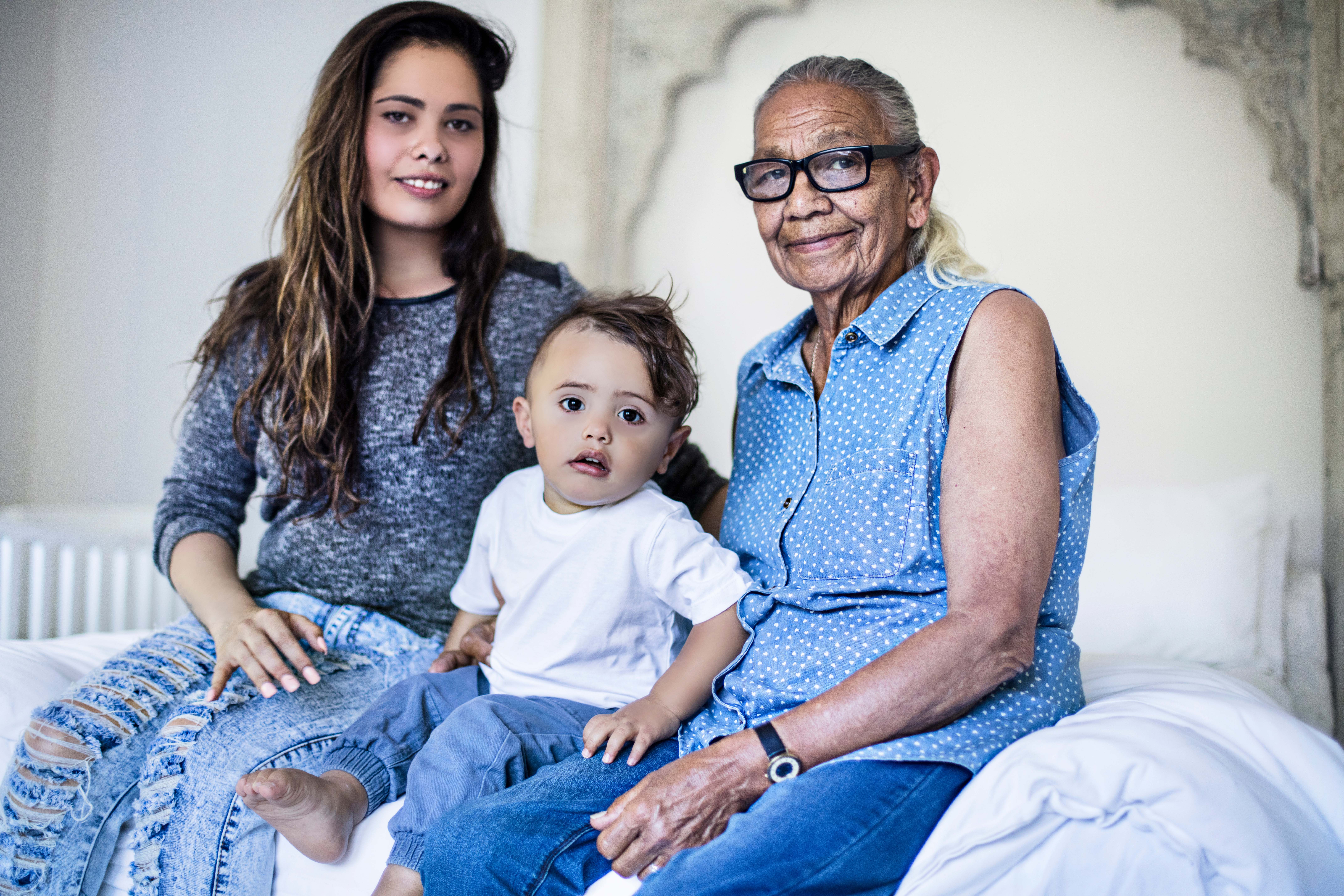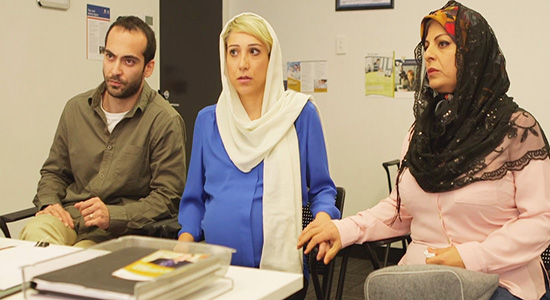
This resource is intended to support you to successfully navigate your transition to Advanced Training and prepare for unsupervised practice as a Specialist Physician. It’s a 'one-stop shop' that you can return to if you ever want to find a useful resource, or need a refresher on the supporting resources, policies and systems available to you.
*The estimated completion time is an approximate guide and does not account for time spent on optional additional readings and activities.
Tags: Category 1 Educational activities
| Topics |
|
|---|---|
| Version | 1 |

Alcohol Use Disorder is a diagnosis which is common in many populations and also one in which, in the past, there have been markedly divergent opinions on management. This resource aims to build capability and medical leadership in the treatment of this problem.
*The estimated completion time is an approximate guide and does not account for time spent on optional additional readings and activities.
Note: Access to this resource is currently available for College members only. Please ensure that you are logging in using your user ID and password. If you are unable to access the resource, or don't have access and feel that you should, please contact digital.learning@racp.edu.au
If you would like to join RACP as your CPD home, please contact membersupport@racp.edu.au
Tags: Category 1 Educational activities Alcohol use disorder Alcohol pharmacology Alcohol dependence Alcohol withdrawal Alcohol withdrawal management Alcohol and pregnancy Alcohol related harm Alcohol and mental health issues Alcohol intoxication Alcohol treatment Genetics Neurobiology Biological markers Wernickes encephalopathy Relapse prevention
| Topics |
|
|---|---|
| Version | 1 |

Alcohol, anxiety and mood disorders are common clinical problems. This resource assists Addiction Medicine practitioners to increase their skills and knowledge in these areas.
*The estimated completion time is an approximate guide and does not account for time spent on optional additional readings and activities.
Note: Access to this resource is currently available for College members only. Please ensure that you are logging in using your user ID and password. If you are unable to access the resource, or don't have access and feel that you should, please contact digital.learning@racp.edu.au
If you would like to join RACP as your CPD home, please contact membersupport@racp.edu.au
Tags: Category 1 Educational Activities
Format: Each module consists of online reading materials, statistics and case studies. There are multiple-choice, true/false and short answer questions throughout the module to assist with your learning.
Modules
1. Classification and Diagnostic Criteria (1 hour)
2. What is Comorbidity? (20 mins)
3. Psychological Management of Comorbid Anxiety & Depression (30 mins)
4. Pharmacological Treatment of Patients with Major Depressive Disorder, Anxiety Disorders and Alcohol Use Disorders (1 hour)
5. Alcohol Use Disorders and Bipolar Affective Disorder (1 hour)
6. Substance Use and Suicide (30 mins)
| Author: | Members from the Australasian Chapter of Addiction Medicine Online Modules Advisory Group: • Dr Mark Hardy, FAChAM (Chair) • Dr Glenys Dore, FAChAM • Dr Lisa Juckes • A/Prof Andrew Baillie • Dr Peter Tucker, FRANZCP, FAChAM |
||
| Version: | 2 | ||

Supporting the provision of culturally competent and culturally safe, best practice medicine for Aboriginal, Torres Strait Islander and Māori patients through reflection on the physician’s own cultural values and recognition of their influence on professional practice.
*The estimated completion time is an approximate guide and does not account for time spent on optional additional readings and activities.
Tags: Category 1 Educational Activities
| Topics |
|
|---|---|
| Format |
|
| Contributors |
Working Group
|
| Version | 1 |

This resource is designed to give you all the information you need to start your training journey with the RACP.
*The estimated completion time is an approximate guide and does not account for time spent on optional additional readings and activities.
Learning outcomes
Better understand how to:
- fulfil the requirements for progressing through Basic Training.
- act in accordance with the program structure, curricula, assessment and timelines.
- identify sources of learning, information and support provided by the RACP.
- identify the purpose and application of key Basic Training tools and resources.
- apply advice for wellbeing and self-care.
- demonstrate an understanding of the structure, roles and responsibilities of the RACP people and organisations involved in training.
- be proactive in planning career pathways and future opportunities at the RACP, including transition to Advanced Training.
| Author | RACP |
|---|---|
| Version | 2 |

Gain an in-depth understanding of the process, context, and responsibilities involved in interviewing overseas-trained physicians (OTPs) in Aotearoa New Zealand.
*The estimated completion time is an approximate guide and does not account for time spent on optional additional readings and activities.
| Topics |
|
|---|---|
| Version | 1 |

Gain an in-depth understanding of the process, context, and responsibilities involved in interviewing overseas-trained physicians (OTPs) in Australia.
*The estimated completion time is an approximate guide and does not account for time spent on optional additional readings and activities.
| Topics |
|
|---|---|
| Version | 1 |
| Release Date | September 2021 |

This resource will cover the clinical effects of cannabis use and screening and assessment tools.
*The estimated completion time is an approximate guide and does not account for time spent on optional additional readings and activities.
Note: Access to this resource is currently available for College members only. Please ensure that you are logging in using your user ID and password. If you are unable to access the resource, or don't have access and feel that you should, please contact digital.learning@racp.edu.au
If you would like to join RACP as your CPD home, please contact membersupport@racp.edu.au
Tags: Category 1 Educational Activities
| Modules |
|
|---|---|
| Version | 1 |

This online course supports Basic Training programs in addressing accreditation standards. It has been designed to help you meet your respective training program requirements and will cover three sections: Capacity to Train overview, the Self-Assessment form, and key messages.
*The estimated completion time is an approximate guide and does not account for time spent on optional additional readings and activities.
Note: Access to this resource is currently available for College members only. Please ensure that you are logging in using your user ID and password. If you are unable to access the resource, or don't have access and feel that you should, please contact digital.learning@racp.edu.au
If you would like to join RACP as your CPD home, please contact membersupport@racp.edu.au
Tags: Category 1 Educational Activities Accreditation Basic Training Capacity to Tain Divisional Clinical Exam Supervisor Support DPE Training Provider Standards Adult Internal Medicine Paediatrics and Child Health (PCH)
| Modules |
|
|---|---|
| Version | 1 |

Equip yourself with the knowledge you need to better identify, assess and manage chronic breathlessness in advanced illness.
*The estimated completion time is an approximate guide and does not account for time spent on optional additional readings and activities.
Note: Access to this resource is currently available for College members only. Please ensure that you are logging in using your user ID and password. If you are unable to access the resource, or don't have access and feel that you should, please contact digital.learning@racp.edu.au
If you would like to join RACP as your CPD home, please contact membersupport@racp.edu.au
| Topics |
|
|---|---|
| Format |
|
| Contributors |
Working Group
|
| Version | 1 |
| Release Date: | October, 2020 |

This resource helps supervisors build a baseline ethics capacity in physicians and improve their ability to teach and assess clinical ethics capabilities in their trainees.
Note: Access to this resource is currently available for College members only. Please ensure that you are logging in using your user ID and password. If you are unable to access the resource, or don't have access and feel that you should, please contact digital.learning@racp.edu.au
If you would like to join RACP as your CPD home, please contact membersupport@racp.edu.au
| Topics |
|
|---|---|
| Version | 1 |

This resource aims to introduce Australasian medical specialists to genomics and help them appropriately:
*The estimated completion time is an approximate guide and does not account for time spent on optional additional readings and activities.
- Discuss genomics with patients and their families
- Refer patients for genomic testing
- Be involved in genomics’ broader integration into healthcare
Note: Access to this resource is currently available for College members only. Please ensure that you are logging in using your user ID and password. If you are unable to access the resource, or don't have access and feel that you should, please contact digital.learning@racp.edu.au
If you would like to join RACP as your CPD home, please contact membersupport@racp.edu.au
Tags: Category 1 Educational activities Genetics Genetic Genomics Genes DNA Genome Hereditary Inheritance Biology Genome Sequencing Genetic Test Genomic Test Genetic Disease Testing
| Topics |
|
|---|---|
| Format |
|
| Version | 1 |
| Release Date | November 2018 |

Developing an understanding of communications is important in a range of work and clinical scenarios. This resource addresses areas such as self-image, self-esteem, self-talk; and offers advice on external communication skills and why they are important in different situations such as with a patient, or a colleague.
*The estimated completion time is an approximate guide and does not account for time spent on optional additional readings and activities.
Note: Access to this resource is currently available for College members only. Please ensure that you are logging in using your user ID and password. If you are unable to access the resource, or don't have access and feel that you should, please contact digital.learning@racp.edu.au
If you would like to join RACP as your CPD home, please contact membersupport@racp.edu.au
Tags: Category 1 Educational activities
Format: Each module consists of online reading materials, statistics and case studies. There are multiple-choice, true/false and short answer questions throughout the module to assist with your learning.
Modules
| Authors: | This was resource was developed by Fellows from The Royal Australian and New Zealand College of Radiologists | ||
| Version: | 2 | ||
| Release Date: | February, 2014 | Revised Date: | November, 2018 |

The Communication Skills online resource is a self-directed resource covering communication skills and frameworks to help you work through everyday conversations you will have as a physician.
*The estimated completion time is an approximate guide and does not account for time spent on optional additional readings and activities.
Note: Access to this resource is currently available for College members only. Please ensure that you are logging in using your user ID and password. If you are unable to access the resource, or don't have access and feel that you should, please contact digital.learning@racp.edu.au
If you would like to join RACP as your CPD home, please contact membersupport@racp.edu.au
Tags: Category 1 Educational activities
Learning outcomes
• Outline the steps needed to prepare for a communication task.• Discuss the importance of active listening and non verbal communication.
• Apply the SPIKES and NURSE frameworks for discussing serious news and responding to emotion to your own practice.
• Discuss key considerations when providing information to a patient or family, including the use of appropriate language.
• Apply the ISBAR framework to your own setting.
Content
Video scenarios
• Part 1 – Handover• Part 2 – Discussing serious news
• Part 3 – The adverse event
• Part 4 – Referral to palliative care
Skills toolbox
• Key communication skills – active listening, non-verbal communication• Communication frameworks – ISBAR, NURSE, SPIKES
• Gathering information – patient cues, approaches to questioning
• Providing information – managing challenging interactions with patients, use of interpreters
| Authors: | Dr Robyn Thomas FRACGP FAChPM Dr Karen Detering FRACP Dr Sadie Dunn FRACP FAChPM MPallcare Dr Katrina Gibson Dr Beres Joyner FRACGP FAFPHM MMedHum Dr Laverne Lok FRACP MPH Dr Megan Phelps FRACP MMedEd Dr Ranjana Srivastava FRACP Dr Raj Tota FRACP Dr Amy Waters FRACP FAChPM MMEd |
||
| Peer reviewers: | Dr Josephine Clayton FRACP FAChPM Dr Derek Eng FRACGP FAChPM Dr Ian Kennedy FRACP Dr Joseph Lee FRACP Dr David Lester-Smith FRACP Dr Sarah Thompson FAChPM |
||
| Version: | 1 | ||
| Release Date: | April, 2016 | Revised Date: | N/A |

This resource is intended to be used primarily by Addiction Medicine specialists and trainees, who recognise that mental health issues are common amongst patients presenting to specialist Drug and Alcohol treatment settings.
*The estimated completion time is an approximate guide and does not account for time spent on optional additional readings and activities.
Tags: Category 1 Educational Activities
| Contributors |
Working Group
|
|---|---|
| Version | 1 |

The medical environment has unique demands and pressures – and therefore its own vulnerabilities to unprofessional behaviour. This resource hopes to improve workplace behaviour by raising awareness and encouraging all physicians to report undesirable behaviour. It helps physicians determine the resources available and appropriate steps for preventing and dealing with bullying and sexual harassment.
*The estimated completion time is an approximate guide and does not account for time spent on optional additional readings and activities.
Note: Access to this resource is currently available for College members only. Please ensure that you are logging in using your user ID and password. If you are unable to access the resource, or don't have access and feel that you should, please contact digital.learning@racp.edu.au
If you would like to join RACP as your CPD home, please contact membersupport@racp.edu.au
Tags: Category 1 Educational activities Bullying Harassment Sexual harassment Medical environment Workplace culture Risk factors Risk prevention Workplace behaviour Preferential treatment Unprofessional behaviour Behavioural spectrum Unacceptable conduct Resilience Physician support services
Learning outcomes
- Identify bullying and harassment along with its effects on workplace culture.
- Understand the importance of a safe work culture and how bullying and harassment impacts physicians and their ability to learn and effectively practice medicine.
- Evaluate the impact of your workplace behaviour on colleagues, patients and health outcomes.
- Determine the resources available and appropriate steps for preventing and dealing with bullying and harassment.
- Identify and promote strategies to prevent and deal with bullying and harassment.
| Authors: |
|
||

This suite of resources is to support specialist medical college supervisors to provide culturally safe supervision to Aboriginal and/or Torres Strait Islander trainees.
If you would like to join RACP as your CPD home, please contact membersupport@racp.edu.au

This online course provides Basic Trainees with information, resources, video demonstrations and study tools to assist them in preparing for, and sitting, the Divisional Written and Clinical Exams.
*The estimated completion time is an approximate guide and does not account for time spent on optional additional readings and activities.
Learning outcomes
- Understand what to expect on the examination days
- Understand the structure and process of both the written and clinical examinations
- Be familiar with the expected standards and assessment criteria of the written and clinical examinations
- Know where to access to a range of study tools and useful resources
- Gain a better understanding of different study strategies and approaches
- Understand the process for transitioning to Advanced Training after passing the examinations
| Contributors and Reviewers |
|
|---|---|
| Version | 1 |
| Release Date | September 2020 |

Alcohol and drug use during pregnancy is a major risk factor for maternal morbidity and neonatal complications, but the prevalence of substance use by women that are pregnant or are of childbearing age is quite high. Early detection by screening of all pregnant women and those planning pregnancies should be a priority. These modules address the assessment of women broadly, and detailed information with regards to alcohol, tobacco and opioid use.
*The estimated completion time is an approximate guide and does not account for time spent on optional additional readings and activities.
Note: Access to this resource is currently available for College members only. Please ensure that you are logging in using your user ID and password. If you are unable to access the resource, or don't have access and feel that you should, please contact digital.learning@racp.edu.au
If you would like to join RACP as your CPD home, please contact membersupport@racp.edu.au
Tags: Category 1 Educational Activities
Format: Each module consists of online reading materials, statistics and case studies. There is multiple-choice, true/false and short answer questions throughout the module to assist with your learning.
Modules
1. Assessment of Women (2 hours)
2. Alcohol Use in Pregnancy (2 hours)
3. Tobacco Use in Pregnancy (2 hours)
4. Opioid Use During Pregnancy (2 hours)
5. Care of Infants and Children (2 hours)
| Author: | Dr Mark Hardy, FAChAM (University of Sydney) | ||
| Version: | 1 | ||

Broaden your understanding of ethics through this resource as you learn about, discuss and reflect on the main ethical issues facing Physicians.
*The estimated completion time is an approximate guide and does not account for time spent on optional additional readings and activities.
Note: Access to this resource is currently available for College members only. Please ensure that you are logging in using your user ID and password. If you are unable to access the resource, or don't have access and feel that you should, please contact digital.learning@racp.edu.au
If you would like to join RACP as your CPD home, please contact membersupport@racp.edu.au
Tags: Category 1 Educational activities Morality Meta Ethics Normative ethics Applied Ethics Clinical Ethics Research Ethics Professional code of ethics Ethical blind spots Ethics, values and rights Ethic and Human Rights Normative ethics Deontology Consequentialist theories Utilitarianism Virtue theory Ethical frameworks in health care Ethical frameworks Clinical ethics Public health ethics Medical ethics Code of Ethics RACP Code of Conduct Ethical Relationships Ethics in professional practice Ethics and professional attributes Ethics and the law Professional medical ethics Legislation Philosophical medical ethics Bioethics Morality Common law cases Legal frameworks Law of consent Negligence Professional discipline Confidentiality End of Life Human Rights Practicing ethically and legally Managing uncertainty and difference Legal uncertainty Clinical uncertainty Ethical uncertainty Four Topics Approach Ethox Framework IDEA Framework Moral distress Four A’s approach Resolving conflicts Clinical Reasoning Discussion Tool Resolving conflicts in the workplace Meditation Long Intervention Decision Making and Consent Introduction to decision making and consent Shared decision making Consent Culture Ethical dilemma Cognitive bias Modes of thinking Implicit bias Capacity and assessment Decision making capacity Infants and young children Primary School Age Children Adolescents Assent Parens Patriae powers Mature minor Previously Competent Adults non-competent patient Decisions in emergency situations emergency department (ED) Medical Board of Australia’s Code of Conduct Consent and the law Legally valid consent Informed consent Adequately informed Refusal of consent Consent forms Information disclosure Effective communication Verbal communication Nonverbal communication Paraverbal communication Risk disclosure Communicating uncertainty Ask-Tell-Ask Technique Withholding information Errors and iatrogenic harms Coercion Coercive behaviour Coerced consent Abuse Vulnerability and Power Doctor and patient relationship Vulnerable persons Vulnerable populations Power differentials Bullying Harassment Continuous engagement in ethics
| Topics |
|
|---|---|
| Contributors |
Working Group
|
| Version | 1 |

This resource supplements the RACP’s Guidelines for ethical relationships between health professionals and industry and aims to assist physicians in identifying, assessing and managing conflicts of interest.
*The estimated completion time is an approximate guide and does not account for time spent on optional additional readings and activities.
Note: Access to this resource is currently available for College members only. Please ensure that you are logging in using your user ID and password. If you are unable to access the resource, or don't have access and feel that you should, please contact digital.learning@racp.edu.au
| Topics |
|
|---|---|
| Version | 1 |
| Release Date | June 2021 |

Genomics can provide greater understanding and more effective diagnosis of genetic conditions, from the relatively common to the extremely rare. This online course has been designed to educate you on how to support Aboriginal and Torres Strait Islander people, families and communities by working together to create world-class genomic research and clinical care.
*The estimated completion time is an approximate guide and does not account for time spent on optional additional readings and activities.
Note: Access to this resource is currently available for College members only. Please ensure that you are logging in using your user ID and password. If you are unable to access the resource, or don't have access and feel that you should, please contact digital.learning@racp.edu.au
Tags: Category 1 Educational Activities
| Modules |
|
|---|---|
| Version | 1 |
| Release Date | June 2022 |

This resource has been designed for Advanced Trainees, as an introduction to Health Policy, Systems and Advocacy. It aims to support Advanced Trainees in meeting the health policy, systems, and advocacy professional standard and underpinning competencies outlined in their specialty curriculum, and to enable connections between Advanced Trainees’ own practice and the nature and attributes of local, national, and global health systems.
*The estimated completion time is an approximate guide and does not account for time spent on optional additional readings and activities.
Note: Access to this resource is currently available for College members only. Please ensure that you are logging in using your user ID and password. If you are unable to access the resource, or don't have access and feel that you should, please contact digital.learning@racp.edu.au
If you would like to join RACP as your CPD home, please contact membersupport@racp.edu.au
Tags: Category 1 Educational activities
| Topics |
|
|---|---|
| Version | 1 |

This resource supports trainee development in leadership, management and teamwork skills and work effectively in multi-disciplinary teams.
*The estimated completion time is an approximate guide and does not account for time spent on optional additional readings and activities.
Note: Access to this resource is currently available for College members only. Please ensure that you are logging in using your user ID and password. If you are unable to access the resource, or don't have access and feel that you should, please contact digital.learning@racp.edu.au
If you would like to join RACP as your CPD home, please contact membersupport@racp.edu.au
Learning outcomes
Upon completion of this resource, participants will be better equipped to:
- Recognise different leadership styles and their healthcare context
- Identify personality style and how this impacts leadership, management, and teamwork skills
- Identify the links between leadership and management
- Recognise different management styles and their healthcare context
- Identify ways to manage self, work, and others
- Develop an understanding of the importance of teamwork in health-care
- Recognise how to apply teamwork principles in patient centred care
| Author | RACP |
|---|---|
| Version | 1 |
| Release Date | October 2020 |

Management is a role made up of an essential set of skills, including communication, self-reflection and conflict management. This course provides information about the whole role, and skills for best managing others. It is a detailed set of modules that allow you to investigate your own methods, and provides strategies for self-improvement. Change management is an essential skill to acquire, and the principles of this are addressed. Methods on how to run a successful meeting are outlined, along with how to recruit the right person for your team. A relevant explanation of the Work Health & Safety Act 2011 with case studies to enhance understanding.
*The estimated completion time is an approximate guide and does not account for time spent on optional additional readings and activities.
Note: Access to this resource is currently available for College members only. Please ensure that you are logging in using your user ID and password. If you are unable to access the resource, or don't have access and feel that you should, please contact digital.learning@racp.edu.au
If you would like to join RACP as your CPD home, please contact membersupport@racp.edu.au
Format: Each module consists of online reading materials, statistics and case studies. There are multiple-choice, true/false and short answer questions throughout the module to assist with your learning.
Modules
1. The Role of Manager - Part 1 (25 mins), Part 2 (25 mins), Part 3 (30 mins)
2. Managing Others (30 mins)
3. Understanding Self as Manager (30 mins)
4. Change Management Principles - Part 1 (30 mins), Part 2 (30 mins)
5. Transitioning through Change - Part 1 (30 mins), Part 2 (30 mins)
6. Conducting an Effective Meeting - Part 1 (45 mins), Part 2 (30 mins)
7. Conflict Management - Part 1 (30 mins), Part 2 (30 mins)
8. The Recruitment & Selection Process (45 mins)
9. Behavioural Interviewing Techniques (30 mins)
10. Work Health & Safety Act 2011 (30 mins)
| Authors: | This was resource was developed by Fellows from The Royal Australian and New Zealand College of Radiologists | ||
| Version: | 2 | ||
| Release Date: | February, 2014 | Revised Date: | December, 2019 |

This resource aims to build the resilience of frontline workers and empower them to confidently manage methamphetamine abuse on the frontline.
*The estimated completion time is an approximate guide and does not account for time spent on optional additional readings and activities.
Note: Access to this resource is currently available for College members only. Please ensure that you are logging in using your user ID and password. If you are unable to access the resource, or don't have access and feel that you should, please contact digital.learning@racp.edu.au
If you would like to join RACP as your CPD home, please contact membersupport@racp.edu.au
Tags: Category 1 Educational Activities
Format: The multimedia resource includes a dedicated Pomegranate podcast featuring expert insights and a skills toolbox that draws together the latest statistics, media coverage and government response, resources to support the wellbeing of medical professionals working on the front line, and methods for dealing with methamphetamine presentations.
Modules
1. Podcast 2. Activities 3. Skills Toolbox
| Contributors: |
|
||
| Version: | |||

The Microbiology Online Learning Resource is designed as an introduction to the key concepts of microbiology for students and trainees of Infectious Diseases.
*The estimated completion time is an approximate guide and does not account for time spent on optional additional readings and activities.
Note: Access to this resource is currently available for College members only. Please ensure that you are logging in using your user ID and password. If you are unable to access the resource, or don't have access and feel that you should, please contact digital.learning@racp.edu.au
If you would like to join RACP as your CPD home, please contact membersupport@racp.edu.au
Tags: Category 1 Educational Activities Infectious diseases Bacteria Viruses Fungi Parasites Containment measures Biosafety Biohazard PPE Media Specimen collection Specimen transport Blood culture Laboratory Microbiology tests
| Modules |
|
|---|---|
| Version | 1 |

This resource aims to review the contemporary understanding of the use of opioids and offer clear operational guidelines for potential prescribers.
*The estimated completion time is an approximate guide and does not account for time spent on optional additional readings and activities.
Note: Access to this resource is currently available for College members only. Please ensure that you are logging in using your user ID and password. If you are unable to access the resource, or don't have access and feel that you should, please contact digital.learning@racp.edu.au
If you would like to join RACP as your CPD home, please contact membersupport@racp.edu.au
Tags: Category 1 Educational activities Opioid prescription Opioid treatment Opioid safety Persistent pain Opioid dose Opioid harm Opioid consumption CDC Guidelines Acute pain Cease opioids Prescription drug monitoring program Benzodiazepine Morphine Naloxone Codeine
| Topics |
|
|---|---|
| Version | 1 |
| Release Date | August 2021 |

In order to ensure that Addiction Medicine practitioners emerge as consultants able to provide opportunistic interventions for patients with alcohol or other drug problems, this resource aims to increase skills and knowledge in these areas.
*The estimated completion time is an approximate guide and does not account for time spent on optional additional readings and activities.
Note: Access to this resource is currently available for College members only. Please ensure that you are logging in using your user ID and password. If you are unable to access the resource, or don't have access and feel that you should, please contact digital.learning@racp.edu.au
If you would like to join RACP as your CPD home, please contact membersupport@racp.edu.au
Tags: Category 1 Educational Activities
Format: Each module consists of online reading materials, statistics and case studies. There is multiple-choice, true/false and short answer questions throughout the module to assist with your learning.
Modules
1. Brief Interventions Introduction (30 mins)
2. Alcohol (30 mins)
3. Tobacco (30 mins)
4. Cannabis (1 hour)
5. Counselling Skills (1 hour)
| Author: | Members from the Australasian Chapter of Addiction Medicine Online Modules Advisory Group: • Dr Mark Hardy, FAChAM (Chair) • Prof Paul Haber, FRACP, FAChAM (Chair) • Dr Olga Lopatko (Lead) • Dr Kate Conigrave |
||
| Version: | 1 | ||

The impact of bullying, harassment, and discrimination are still considered a pervasive problem in the healthcare industry with the Australian Medical Association recognising both the importance of a healthy medical workforce and addressing unprofessional behaviours in the workplace.
Optimising your workplace culture is designed to help physicians build safe and healthy workplaces. It explains and helps physicians identify the factors contributing to healthy workplaces and aims to provide strategies and tools to combat unprofessional behaviours such as: incivility, conflict, gossip, rumour, bullying, harassment, and discrimination.
Note: Access to this resource is currently available for College members only. Please ensure that you are logging in using your user ID and password. If you are unable to access the resource, or don't have access and feel that you should, please contact digital.learning@racp.edu.au
If you would like to join RACP as your CPD home, please contact membersupport@racp.edu.au
| Topics |
|
|---|---|
| Version | 1 |

This online forum enables you to connect with your colleagues, share ideas, and explore topics of interest, while keeping you informed about the latest news and events. If you're new to this forum, take a moment to explore the community, introduce yourself, and jump into the discussions that interest you most.
Note: Access to this resource is currently available for Overseas Trained Physicians only. Please ensure that you are logging in using your user ID and password. If you are unable to access the resource, or don't have access and feel that you should, please contact otp@racp.edu.au

Enrolments after 2 Dec 2022 Developed for Overseas Trained Physicians (OTP), with a focus on the Australian healthcare environment, this resource has been designed to prepare you for practice in Australia.
*The estimated completion time is an approximate guide and does not account for time spent on optional additional readings and activities.
| Topics |
|
|---|---|
| Version | 4 |

This series of three online modules covers the domain of Pain Management in the Advanced Training Palliative Medicine Curriculum by presenting three long cases in a range of clinical settings. The modules also address a range of domains in the Professional Qualities Curriculum.
Each case should take approximately 2-3 hours to complete, however each are broken into small, 15-30 min sections that you may complete and return to in stages if you wish.
Note: Access to this resource is currently available for College members only. Please ensure that you are logging in using your user ID and password. If you are unable to access the resource, or don't have access and feel that you should, please contact digital.learning@racp.edu.au
If you would like to join RACP as your CPD home, please contact membersupport@racp.edu.au
*The estimated completion time is an approximate guide and does not account for time spent on optional additional readings and activities.
Tags: Category 1 Educational activities pathophysiology management of pain palliative care community palliative care tertiary palliative care opioids intrathecal analgesia tenesmus disability disabled child pain transmission pain modulation health advocacy alternative therapy in-patient palliative care ethical dilemma advanced care planning
| Topics |
|
|---|---|
| Format |
|
| Contributors |
Working Group
|
| Version | 2 |

This resource aims to provide you with the advocacy skills and competencies that will enable you to advocate on behalf of your patients, colleagues and Specialty Societies.
Note: Access to this resource is currently available for College members only. Please ensure that you are logging in using your user ID and password. If you are unable to access the resource, or don't have access and feel that you should, please contact digital.learning@racp.edu.au
If you would like to join RACP as your CPD home, please contact membersupport@racp.edu.au
*The estimated completion time is an approximate guide and does not account for time spent on optional additional readings and activities.
| Topics |
|
|---|---|
| Version | 2 |

This resource helps physicians adopt pro-active strategies so they can aim to thrive in their work, and help others to do the same.
Note: Access to this resource is currently available for College members only. Please ensure that you are logging in using your user ID and password. If you are unable to access the resource, or don't have access and feel that you should, please contact digital.learning@racp.edu.au
If you would like to join RACP as your CPD home, please contact membersupport@racp.edu.au
*The estimated completion time is an approximate guide and does not account for time spent on optional additional readings and activities.
Tags: Category 1 Educational activities Physician Health Professional Wellbeing Relationships Self Care Plan Support Network Mental Wellbeing Preventative Self Care Self Care Framework Burnout Emotional Distress Self Care Strategy Self Treatment Building Resilience Professional Skills Stigma Death Crisis Asking For Help Self Assessment Mindfulness Self Compassion Oldenburg Burnout Inventory K10 Skovholt Inventory Self Care Strategy Burnout Prevention Self Care Activity Active Listening Self Kindness Organisational Culture Stress Counselling Therapy Nutrition Doctor's Health Advisory Service
Learning outcomes
- Understand how self-care and wellbeing impact physician practice
- Form relationships and networks to support personal and professional wellbeing
- Establish appropriate self-care strategies to increase self-awareness and better manage and regulate your wellbeing and physician practice
Who it is for
- New and experienced supervisors
- Basic and advanced trainees
- RACP Fellows from any specialty
What you'll get
- Video scenarios that demonstrate the need for preventative self-care
- Practice, reflection and discussion activities
- Toolbox of supporting resources to assist the learner in identifying and managing their self-care needs
- Curated list of additional resources and further reading
What you'll learn
- How to identify the signs of burnout
- How to monitor your own wellbeing
- How to develop a self-care plan
- Ways to encourage others in the workplace to practice self-care
- How to promote wellbeing in the workplace and evoke cultural change around seeking help
| Authors: |
|
||

Learn how to better support your own wellbeing, as well as the wellbeing of your staff and colleagues, during times of challenge or crisis.
Note: Access to this resource is currently available for College members only. Please ensure that you are logging in using your user ID and password. If you are unable to access the resource, or don't have access and feel that you should, please contact digital.learning@racp.edu.au
If you would like to join RACP as your CPD home, please contact membersupport@racp.edu.au
*The estimated completion time is an approximate guide and does not account for time spent on optional additional readings and activities.
Learning outcomes
Upon completion of this resource, participants will get:
- Practical strategies and approaches around leading with compassion, communicating effectively, promoting wellbeing, and mitigating the impact of challenging times on teams and staff members.
- Information and tools to help you effectively set healthy boundaries and prevent burnout.
- Guidance on creating and utilising connections with peers, supervisors, support networks and others.
| Author | RACP |
|---|---|
| Version | 1 |

This resource will cover the most common use of the prescription drugs opioids and benzodiazepines, and others including gabapentinoids, ‘Z drugs’ and antipsychotic medications.
*The estimated completion time is an approximate guide and does not account for time spent on optional additional readings and activities.
Note: Access to this resource is currently available for College members only. Please ensure that you are logging in using your user ID and password. If you are unable to access the resource, or don't have access and feel that you should, please contact digital.learning@racp.edu.au
If you would like to join RACP as your CPD home, please contact membersupport@racp.edu.au
Tags: Prescription drugs PBS Pharmaceutical benefits Opioids Sedatives Psychoactive agents Benzodiazepines Gabapentoids Z drugs Antipsychotic medication Opioid dependence Opioid treatment Benzodiazepine dependence Benzodiazepine withdrawal
| Topics |
|
|---|---|
| Version | 1 |

Strong professionals have a level of skill with regards to clinical leadership, resilience, and their personal style with dealing with others and workload. This module discusses methods of these skills to develop your own technique to improve as a clinical professional.
*The estimated completion time is an approximate guide and does not account for time spent on optional additional readings and activities.
Note: Access to this resource is currently available for College members only. Please ensure that you are logging in using your user ID and password. If you are unable to access the resource, or don't have access and feel that you should, please contact digital.learning@racp.edu.au
If you would like to join RACP as your CPD home, please contact membersupport@racp.edu.au
Tags: Category 1 Educational activities
Leadership Management Cinical Leadership Effective Leadership Clinical Performance Leadership Styles Facilitator Resilience Leadership Skills Resilient Organisation Four Frames Strategic Planning Collegiate Relationships Five Practices Model Culture Successful Leaders Change ManagementFormat: Each module consists of online reading materials, statistics and case studies. There are multiple-choice, true/false and short answer questions throughout the module to assist with your learning.
Modules
| Authors: | This resource was developed by Fellows from The Royal Australian and New Zealand College of Radiologists | ||
| Version: | 2 | ||

This resource helps identify and overcome common quality and safety challenges in health workplace.
*The estimated completion time is an approximate guide and does not account for time spent on optional additional readings and activities.
Note: Access to this resource is currently available for College members only. Please ensure that you are logging in using your user ID and password. If you are unable to access the resource, or don't have access and feel that you should, please contact digital.learning@racp.edu.au
If you would like to join RACP as your CPD home, please contact membersupport@racp.edu.au
Tags: Category 1 Educational Activities Improving quality and safety Disability-Adjusted Life Years DALYs Morbidity Mortality Health Quality and Safety Commission Health professional’s wellbeing Quality in healthcare Safety in health care Australian Safety and Quality Framework Take Action A mindset of prevention Prevention Safety culture Risk management Safety calendar Safety lead Safety champion Incident reporting Incident investigation Patient safety audit Incident reporting Causes of incident Feedback Minor incident Near misses Improve reporting Checklists Patient safety Patient centred care Common Quality and safety challenges Poor communication Performance factors Framing bias Availability bias Premature closure Conscious bias Unconscious bias Fatigue Stress Burnout Quality and safety challenges Quality and safety strategies Championing quality and safety Advocating for quality and safety Safety champion Evolve Physician wellbeing Anxiety Poor concentration Overwhelm RACP Support Helpline Lifeline Professional support services Delivering patient centred care Patient centred care Picker’s eight principles Patient centred communication Quality and safety organisations
| Topics |
|
|---|---|
| Contributors |
Working Group
|
| Version | 1 |

Learn about the unique factors and challenges of practicing healthcare in Rural Australia and how they influence the delivery of quality and safe care.
*The estimated completion time is an approximate guide and does not account for time spent on optional additional readings and activities.
Note: Access to this resource is currently available for College members only. Please ensure that you are logging in using your user ID and password. If you are unable to access the resource, or don't have access and feel that you should, please contact digital.learning@racp.edu.au
If you would like to join RACP as your CPD home, please contact membersupport@racp.edu.au
| Topics |
|
|---|---|
| Version | 1 |

The Research Projects online resource is a self-directed resource covering the process of conducting RACP research projects. The resource includes interviews with six trainees, exploring their journey completing one of the acceptable types of RACP research projects:
• Research in human subjects, populations and communities or laboratory research;
• Audit; and
• Systematic review.
*The estimated completion time is an approximate guide and does not account for time spent on optional additional readings and activities.
Note: Access to this resource is currently available for College members only. Please ensure that you are logging in using your user ID and password. If you are unable to access the resource, or don't have access and feel that you should, please contact digital.learning@racp.edu.au
Tags: Category 1 Educational activities
Learning outcomes
• Understand how to formulate a realistic and appropriate research question.• Understand approaches to critically analyse relevant literature.
• Understand research methodology and scientific methods.
• Use effective scientific writing.
• Demonstrate awareness of research integrity.
• Demonstrate awareness of the importance of translating research to the workplace.
• Select approaches to collect and analyse data.
• Extract and articulate findings from data collected.
• Understand the use of evidence-based medicine.
Content
Podcast interviews
Research in human subjects, populations and communities or laboratory research
• Dr Rachel Aitken• Dr Catherine Bateman-Steel
Audit
• Dr Jithin Sajeev• Dr Roshan Gunathilake
Systematic review
• Dr Simone Martin• Dr Melissa Lai
Research process
Foundation
• Review of evidence-based medicine• RACP Research project requirements
Research process
• Finding a supervisor• Identifying research gaps
• Designing a research question
• Conducting a literature review
• Research methods
• Ethics, integrity, collaboration and authorship
• Data collection and analysis
• Scientific writing
• Application to the workplace and clinical practice
Project types
• Research in human subjects, populations and communities or laboratory research• Audit
• Systematic review
| Authors: | A/Prof Mark Boyd FRACP A/Prof Franz Babl FRACP Prof Mark Ferson FRACP FAFPHM Dr Roshan Gunathilake FRACP Dr Shaikh Javaid Dr Vincent Lee FRACP Dr Peter New FRACP Dr Rebecca Nogajski FRACP Dr Alice Stewart FRACP Dr Paul Timmings FRACP |
||
| Peer reviewers: | Dr Meera Agar FRACP FAChPM Dr Petrina Caldwell FRACP Dr Michael Gabbett FRACP Dr Anthea Greenway FRACP Dr David Krieser FRACP Dr Joseph Lee FRACP Dr Robyn Lucas FAFPHM Dr Marcus McMahon FRACP Dr Martina Moorkamp FRACP Dr Helen Jean Moriarty FAChAM Dr Megan Phelps FRACP Dr Kirsty Ross |
||
| Version: | 1 | ||

This resource is designed to help Advanced Training Research Project supervisors address a number of key supervision skills to help trainees succeed in completing their Research Projects.
*The estimated completion time is an approximate guide and does not account for time spent on optional additional readings and activities.
Note: Access to this resource is currently available for College members only. Please ensure that you are logging in using your user ID and password. If you are unable to access the resource, or don't have access and feel that you should, please contact digital.learning@racp.edu.au
If you would like to join RACP as your CPD home, please contact membersupport@racp.edu.au
Tags: Category 1 Educational activities Evolve Research topic FINER method PICOT method Best Bet method Research mindset Time management Project management tools Research proposal Literature review Systematic review Quantitative research Supervision style Supervision skills Research project guidelines Mentoring Stakeholders Academic writing Researcher development framework Post research
| Topics |
|
|---|---|
| Contributors |
Working Group
|
| Version | 1 |

Helping smokers quit is a complex area, with many smokers continuing to smoke despite their medical circumstances. This resource provides an evidence-based approach to a range of interventions tailored to individual cases.
*The estimated completion time is an approximate guide and does not account for time spent on optional additional readings and activities.
Note: Access to this resource is currently available for College members only. Please ensure that you are logging in using your user ID and password. If you are unable to access the resource, or don't have access and feel that you should, please contact digital.learning@racp.edu.au
If you would like to join RACP as your CPD home, please contact membersupport@racp.edu.au
Tags: Category 1 Educational Activities
Format: There are five cases in this module, each addressing a different complexity in relation to smoking cessation. Each case consists of statistics, expert feedback and short answer questions to assist with your learning.
Modules
1. Chronic obstructive pulmonary disease (30 min)
2. Depression (1.5 hours)
3. Pregnant, Indigenous teenager (30 min)
4. Alcohol dependence (1.5 hours)
5. Harm-reduction/Schizophrenia (30 min)
| Author: | Dr Renee Bittoun Dr Colin Mendelsohn |
||
| Version: | 1 | ||

The SPDP Online Facilitation course is designed to enable RACP Supervisors to successfully facilitate the Online Supervisor Professional Development Program (SPDP).
*The estimated completion time is an approximate guide and does not account for time spent on optional additional readings and activities.
Note: Access to this resource is currently available for College members only. Please ensure that you are logging in using your user ID and password. If you are unable to access the resource, or don't have access and feel that you should, please contact digital.learning@racp.edu.au
If you would like to join RACP as your CPD home, please contact membersupport@racp.edu.au
Format: An online course, which can be undertaken in your own time. It contains readings, guidelines, videos and interactive discussions.
Modules
- Module 1: Introduction to Facilitation
- Module 2: Practical Skills for Supervisors
- Module 3: Teaching and Learning in Healthcare Settings
- Module 4: Work-based Learning and Assessment
Learning outcomes
By completing this course you should be able to:
- Understand and integrate the aims of successful facilitation into your own facilitation experience
- Understand and utilise the major skills used for successful facilitating
- Learn to navigate the online platform confidently and with ease
| Version: | 1 | ||

Learn about how to better promote and support Aboriginal and Torres Strait Islander People’s access to specialist care through this case study based online course.
*The estimated completion time is an approximate guide and does not account for time spent on optional additional readings and activities.
Note: Access to this resource is currently available for College members only. Please ensure that you are logging in using your user ID and password. If you are unable to access the resource, or don't have access and feel that you should, please contact digital.learning@racp.edu.au
If you would like to join RACP as your CPD home, please contact membersupport@racp.edu.au
Tags: Aboriginal health Torres Strait Islander health Cultural Safety Indigenous Australians Aboriginal healthcare Equitable access to healthcare Specialist care Marrabinya St Vincent’s Top End Torres Strait Inala
Learning outcomes
This course has been designed to help participants improve their understanding of:
- Aboriginal and Torres Strait Islander healthcare
- The message and principles of the RACP’s Medical Specialist Access Framework (MSAF)
- Foundations that need to be in place for Aboriginal and Torres Strait Islander people to access specialist care
- Key principles that ensure equitable access to specialist healthcare
- Stakeholders that should be engaged to promote the delivery of specialist medical care for Aboriginal and Torres Strait Islander people
| Author | RACP |
|---|---|
| Version | 1 |

Access all of the information and tools you need to prepare for, and conduct, culturally competent and patient-centred telehealth consultations.
*The estimated completion time is an approximate guide and does not account for time spent on optional additional readings and activities.
Note: Access to this resource is currently available for College members only. Please ensure that you are logging in using your user ID and password. If you are unable to access the resource, or don't have access and feel that you should, please contact digital.learning@racp.edu.au
If you would like to join RACP as your CPD home, please contact membersupport@racp.edu.au>
| Topics |
|
|---|---|
| Version | 1 |

The Telesupervision online resource is a self-directed resource covering the process of supervision using technologies such as video conferencing, to support trainees and supervisors in rural and remote locations.
*The estimated completion time is an approximate guide and does not account for time spent on optional additional readings and activities.
Note: Access to this resource is currently available for College members only. Please ensure that you are logging in using your user ID and password. If you are unable to access the resource, or don't have access and feel that you should, please contact digital.learning@racp.edu.au
If you would like to join RACP as your CPD home, please contact membersupport@racp.edu.au
Tags: Category 1 Educational activities
Learning outcomes
• Understand the uses of telesupervision in both rural and metropolitan settings.
• Recognise the differences between telesupervision and telehealth.
• Be familiar with the available technology that can be used in telesupervision.
• Describe the differences in goal setting using technology.
• Use telesupervision in a range of different contexts, such as clinics and ward rounds.
Content
Video scenarios
• Part 1 – Using telesupervision on a ward round
• Part 2 – Using telesupervision in a clinic
• Part 3 – Using telesupervision in one to one interaction
Skills toolbox
• Defining telesupervision
• Telesupervision technology
• Telesupervision in practice
| Authors: | Dr David Allen FAFOEM Dr Tessa Davis Dr Jerome Goldstein Dr Jaye Martin FRACP Dr Corinne Ryan FRACP Dr Sabe Sabesan FRACP Dr Spencer Toombes FRACP Dr Ramila Varendran FRACP A/Prof Martin Veysey FRACP Dr James Williamson FRACP |
||
| Version: | 1 | ||

This online course aims to introduce Australasian medical specialists to thalidomide and thalidomide embryopathy, and their implications for thalidomide survivors today.
*The estimated completion time is an approximate guide and does not account for time spent on optional additional readings and activities.
Note: Access to this resource is currently available for College members only. Please ensure that you are logging in using your user ID and password. If you are unable to access the resource, or don't have access and feel that you should, please contact digital.learning@racp.edu.au
If you would like to join RACP as your CPD home, please contact membersupport@racp.edu.au
| Topics |
|
|---|---|
| Contributors |
Working Group
|
| Version | 1 |
This resource explains the process to supervisors and trainees so they work together effectively to address training difficulties. It supports supervisors and trainees to navigate the Training Support Pathway.
*The estimated completion time is an approximate guide and does not account for time spent on optional additional readings and activities.
Note: Access to this resource is currently available for College members only. Please ensure that you are logging in using your user ID and password. If you are unable to access the resource, or don't have access and feel that you should, please contact digital.learning@racp.edu.au
If you would like to join RACP as your CPD home, please contact membersupport@racp.edu.au
Tags: Category 1 Educational activities
Learning outcomes
Overview of the Trainee in Difficulty Support Policy and Pathway
- Describe the Trainee in Difficulty Support Policy
- Outline the steps involved in the Pathway
Identifying the difficulty
- Explain how a trainee in difficulty might be identified.
- Outline reasons why a trainee might experience difficulty.
Assessing and diagnosing the difficulty
- Explain strategies that can be used to assess and diagnose a trainee in difficulty.
- Recognise the importance of feedback and how it can be used to improve performance.
- Outline how a supervisor could prepare for and conduct a performance review meeting
Supporting the trainee and managing training performance
- Describe strategies that can be used to support a trainee in difficulty.
- Use the Improving Performance Action Plan (IPAP) to define expected performance standards and assist a trainee to get back on track.
- Identify satisfactory and/or unsatisfactory performance and manage appropriately
- Recognise when assistance or escalation of the issue is required and follow the appropriate pathway
Who it is for
- New and experienced supervisors
- Basic and advanced trainees
- RACP Fellows from any specialty
What you'll get
- Video scenarios that demonstrate the Trainee in Difficulty Support Policy, Process and Pathway
- Practice, reflection and discussion activities
- Toolbox of supporting resources that cover the skills and frameworks in detail
- Curated list of additional resources and further reading
What you'll learn
- How to identify a trainee in difficulty
- The main types of difficulty experienced by trainees
- How to refer a trainee to the Training Support Pathway
- Tips for having challenging conversations and providing feedback
- How to prepare for a successful meeting
- How to write and review an IPAP
| Authors: |
|
||

This online course has been designed to help trainees develop the knowledge, skills and attitudes required to deliver effective health care to young people.
*The estimated completion time is an approximate guide and does not account for time spent on optional additional readings and activities.
Note: Access to this resource is currently available for College members only. Please ensure that you are logging in using your user ID and password. If you are unable to access the resource, or don't have access and feel that you should, please contact digital.learning@racp.edu.au
If you would like to join RACP as your CPD home, please contact membersupport@racp.edu.au
| Topics |
|
||
|---|---|---|---|
| Contributors (2020): |
|
||
| Version | 1 | ||

Learn how to work more sensitively and effectively with migrant, refugee and asylum seeker patients. This resource includes the perspectives and stories of a diverse range of individuals, and also provides relevant facts and practical strategies for objectives such as good cross-cultural communication and facilitating easier navigation of the healthcare system.
*The estimated completion time is an approximate guide and does not account for time spent on optional additional readings and activities.
Note: Access to this resource is currently available for College members only. Please ensure that you are logging in using your user ID and password. If you are unable to access the resource, or don't have access and feel that you should, please contact digital.learning@racp.edu.au
If you would like to join RACP as your CPD home, please contact membersupport@racp.edu.au
Tags: Category 1 Educational activities Refugee Migrant Asylum Seeker Middle-Eastern Trauma Detention Centre Humanitarian Human Rights Intercultural Communication Cross-Cultural Communication Religion Culture Interpreters Interpretation Inheritance Translation Healthcare Access Racism Cultural Competence Cultural Safety Cultural Sensitivity Stereotyping Western Medicine Asian Jewish Identity Health Beliefs
| Topics |
|
|---|---|
| Contributors |
Working Group
|
| Version | 1 |

Young people who use drugs and alcohol is a common clinical problem. It is important for clinicians providing health care to adolescents to understand their behaviour and needs from a developmental perspective. This resource will assist Addiction Medicine practitioners in increasing their knowledge and skills to effectively manage young people and their families through specific approaches.
*The estimated completion time is an approximate guide and does not account for time spent on optional additional readings and activities.
Note: Access to this resource is currently available for College members only. Please ensure that you are logging in using your user ID and password. If you are unable to access the resource, or don't have access and feel that you should, please contact digital.learning@racp.edu.au
If you would like to join RACP as your CPD home, please contact membersupport@racp.edu.au
Tags: Category 1 Educational Activities
Format: Each module consists of online reading materials, statistics and case studies. There are multiple-choice, true/false and short answer questions throughout the module to assist with your learning.
Modules
1. Epidemiology (20 mins)
2. Impact of Developmental Stages (20 mins)
3. Assessment Frameworks (30 mins)
4. Risk and Protective Factors (30 mins)
5. Formulating Management Plans (1 hour)
6. Risk Assessment (30 mins)
7. Mental Health Issues associated with Adolescent Substance Abuse (30 mins)
8. Parent and family interventions for adolescent substance misuse (30 mins)
9. The BEST Plus approach to assisting families recover from youth substance problems (1 hour)
| Author: | Members from the Australasian Chapter of Addiction Medicine Online Modules Advisory Group: • Dr Mark Hardy, FAChAM (Chair) • A/Prof Yvonne Bonomo, FRACP, FAChAM • Dr Bronwyn Milne, FRACP • Dr Gilbert Whitton, FAChAM • Dr Peter Krabman • Dr Deborah Zador, FAFPHM, FAChAM |
||
| Version: | 2 | ||
| Release Date: | February, 2009 | Revised Date: | June, 2013 |
